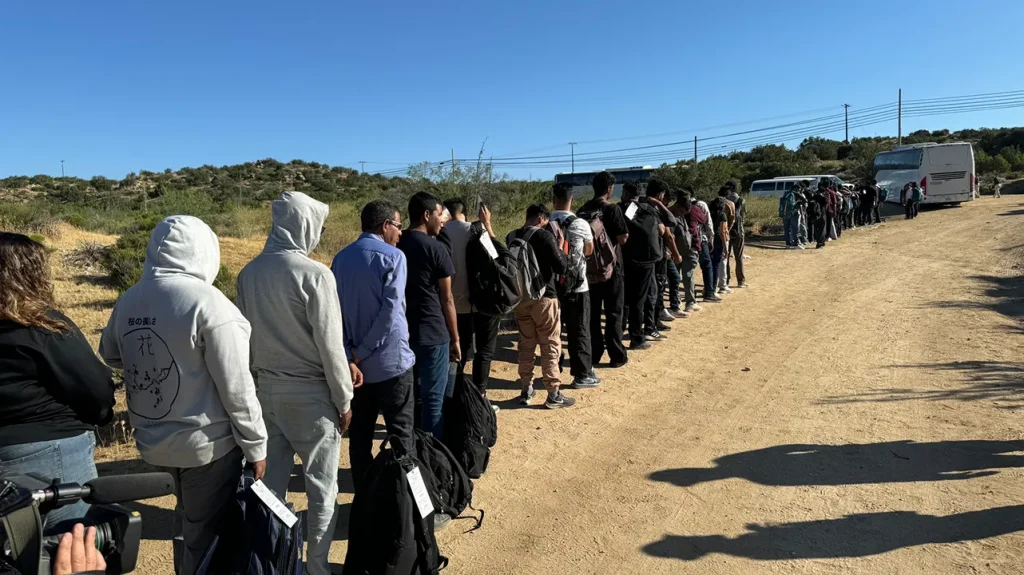A federal judge in Iowa has put a stop to the state’s attempt to enforce its own immigration laws, which targeted illegal immigrants with outstanding deportation orders or previous denials of entry to the U.S. U.S. District Court Judge Stephen Locher issued a temporary block on the enforcement of the Iowa legislation, citing that federal immigration law supersedes state law. Locher’s ruling stated that the new legislation may be defensible from a political standpoint but is not valid under the Supremacy Clause due to federal preemption.
Republican Iowa Gov. Kim Reynolds signed the “illegal re-entry” bill into law earlier this year, following similar legislation in Texas. Reynolds and Iowa Attorney General Brenna Bird expressed their plans to appeal the ruling, criticizing President Biden’s handling of border policies. Bird blamed the need for such laws on Biden’s “open borders” approach and urged him to take responsibility for securing the border. Reynolds accused the Biden administration of leaving states vulnerable without proper enforcement of federal immigration laws, leading to the ongoing crisis at the southern border.
The Iowa law, which was set to take effect on July 1, aimed to address the issues arising from the Biden administration’s perceived lax approach to border security. The Justice Department has indicated its intention to challenge a similar piece of legislation in Oklahoma in the near future. The escalating conflicts between state and federal immigration laws underscore the tension between the different levels of government in addressing immigration issues. The legal battles surrounding these laws highlight the complexities and challenges in finding a cohesive approach to immigration enforcement in the United States.
The decision to halt enforcement of the Iowa immigration law reflects the ongoing debate over how best to address immigration issues at the state and federal levels. While states have sought to fill perceived gaps in federal enforcement, such efforts have faced legal challenges asserting federal supremacy in the realm of immigration law. The conflicting viewpoints on immigration policy highlight the complexities of the issue and the challenges of finding a comprehensive, unified approach to border security and enforcement.
The legal battles over state immigration laws also reveal the broader political divisions and disagreements over immigration policy in the United States. The ongoing debate over how to address illegal immigration, border security, and enforcement measures reflects differing perspectives on national sovereignty, humanitarian concerns, and economic impacts. As states and the federal government continue to grapple with these issues, the need for comprehensive immigration reform remains a pressing issue that requires careful consideration of legal, social, and political implications.
Despite the temporary halt on enforcement of the Iowa immigration law, the underlying tensions and conflicts over immigration policy persist. The legal challenges and political debates surrounding state immigration legislation highlight the ongoing struggles to find a balance between state autonomy and federal authority in addressing immigration issues. As the legal battles continue and political tensions remain high, finding a resolution that addresses the complex issues surrounding immigration enforcement remains a significant challenge for policymakers at all levels of government.


